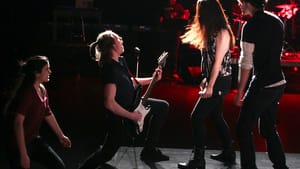Stay in the Loop
BSR publishes on a weekly schedule, with an email newsletter every Wednesday and Thursday morning. There’s no paywall, and subscribing is always free.
The Polyphone Festival is back for a third year at UArts

When the term "incubating the musical" comes up in conversation it seems, at first, a distanced and cold way of observing any theatrical form, let alone one filled with heart and song. Yet that is exactly what César Alvarez, a visiting associate professor of theater at the University of the Arts, has been up to for the last three years with his Polyphone Festival: a program of new and emerging musicals in concert form from young and up-and-coming talent. The third annual festival launches March 28 for a five-day run.
“I created Polyphone because I was trying to design a new process for incubating musicals,” says Alvarez of his program’s start at UArts. “I felt then, and I still feel, that the way a musical is made is intrinsically linked to what it ends up becoming.”
He’s hooked
Alvarez wanted to create an “artist-driven opportunity” to take young musicals, practitioners, and creators into an exciting and loose concert format. “It has been revelatory to see so many shows in their earliest stages and to see what it has given the artists. It has made me a better artist and it has begun to change the landscape of my field, so yeah, I'm hooked.”
Along with learning to be a better artist, Alvarez learned about new musical forms during his three years of Polyphone-ic curatorial duties. “One of the biggest ideas at the core of Polyphone is that the American musical is an aesthetically diverse form, not a single genre. I've tried each year to create more stylistic breadth in the programming, but we are just getting started.”
Curation as collage
How does Alvarez curate? Does he go for certain juxtapositions or contrasts to create a larger statement for Polyphone as an aesthetically driven festival?
“There are so many considerations that go into it,” he says. “I'm looking for shows that are ready to be put onto their feet, that need decent-sized casts of young people, and which feel like they could really grow in the unique context of Polyphone. Each show is its own little animal, and so it's like creating a collage. There's no one way to do it, but I'm trying to choose pieces that are all really different, yet still talking to one another.”
Directors, actors, playwrights, and composers are all part of Polyphone’s mix; so are producers, a welcome part of Alvarez’s vision, since producers are a rarely considered aspect of a play’s forward motion.
“Part of the idea is to give commercial producers and producing theaters a different kind of opportunity to experience a musical in development,” says Alvarez. “Usually, if someone is considering producing a musical, they'll hear it read by actors on music stands with a piano, and if they are lucky a concert performance.” But a staged concert with a full band, he explains, is a rarity.
“Polyphone gives authors the chance to see their work on its feet and producers the chance to see a show closer to how it could be in production,” he continues, noting that Philly and New York host relatively few new musicals. “I think that's at least partially because musicals are developed in such a dry way.”
Meet the musicals
The four musicals in this year’s fest include Normativity, with book, music, and lyrics by Jaime Jarrett (directed by Rebecca Wright). It runs March 28, 31, and April 1 at the Arts Bank, and according to Alvarez, “deals with how the stories that are told about us can minimize or remake our existence. Also, magic queer teenage love.”
There’s also The Best Songs in the World Show by Philly’s Red 40 and the Last Groovement (March 29 and 30 and April 1 at the Arts Bank), with book, music, and lyrics by lead singer Martha Stuckey in collaboration with the Groovement, directed by Anisa George. Alvarez says it deals with “how we put on masks, and [how] the masks hunt us down. Also, starstuff and spies.”
Folk Wandering, with book and lyrics by Jaclyn Backhaus and music and additional lyrics by a large team of artists, runs March 28 and 31 and April 1 at the Merriam, directed by Andrew Neisler. It’s about “looking for something. Looking for a place or a way to define ourselves and survive in spite of all odds. Also, James Dean.”
And The Real Whisper, with music and lyrics by Greta Gertler and book and additional lyrics by Akin Salawu, directed by Nell Bang-Jensen, covers “how we lie to ourselves, ignore our histories, and hide behind personas. Also, murderous ghosts.”
Shakina Nayfack, actor, writer, and artistic director of New York’s Musical Theater Factory, will give a Polyphone keynote address on community, identity, and activism in musical theater at 10am on Saturday, April 1, at the Arts Bank, and the day will continue with a “marathon” of all four featured musicals in succession, beginning at noon.
All in all, Alvarez says the Polyphone 2017 musicals are “about who we are… each, in some way, about identity; the stories that define us; the fictions we create; the many personas we juggle.”
The 2017 Polyphone Festival, created through the University of the Arts Ira Brind School of Theater Arts, is running at the Arts Bank (at Broad and South Streets) and the Merriam (250 S. Broad Street) from March 28 to April 1. Tickets are available online.
Sign up for our newsletter
All of the week's new articles, all in one place. Sign up for the free weekly BSR newsletters, and don't miss a conversation.
 A.D. Amorosi
A.D. Amorosi